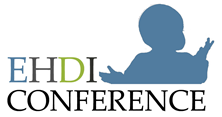| Presenter Information: |
| Presenter 1: |
Name: Gloria Menezes-Furtado
Affiliation:
Gloria holds a Bachelor’s and Master’s degrees in English Literature, as well as a Master’s of Education of the Deaf. She is a certified Auditory Verbal Therapist and holds certification as a Teacher of the Deaf. She has worked with deaf children and their families for more than twelve years. Her experiences include supporting mainstream students with hearing loss in areas of language and academics, as well as individualized instruction in speech and auditory skills. Gloria has become a mentor to others in the field because of her expertise in the Auditory-Verbal approach to therapy for deaf children. Her interests include integrating technology into intervention and using a whole-child approach, identifying the multiple intelligences of her students.
|
| Presenter 2: |
Name: Karen Cassidy
Affiliation:
Karen holds a Bachelor’s degree in Communication Sciences and Disorders from James Madison University, and a Master’s in Deaf Education from Gallaudet University. She holds certification in Deaf Education and an Early Childhood Education teaching license. Karen's experiences include residential school for the deaf preschool teacher, high school deaf education instructor, and early interventionist. Her interests include early intervention, play-based and family-centered therapy, and working with families in their natural environments to encourage listening and language.
|
| Presenter 3: |
Name: Sarah Wainscott
Affiliation:
Sarah holds a Bachelor’s degree in Speech Language Pathology, a Master’s of Education in Hearing Disorders, and has completed her Doctorate work in Deaf Education. She is licensed as an Audiologist and holds certification in Deaf Education. Sarah has worked with deaf children and their families for more than seventeen years. Her experiences include clinical and educational Audiology, preschool teacher and early interventionist, program director, parent educator, and university instructor. Sarah’s research interests include the decision-making processes of families and early language acquisition by young deaf children. Sarah particularly values family-centeredness and a transdisciplinary approach to servicing children with hearing loss.
|
|

